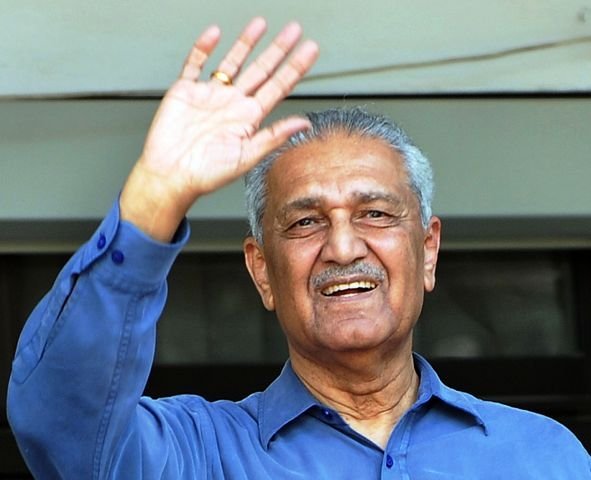The devastated economy and high inflation in Pakistan are wreaking havoc on the socioeconomic fabric of the country. In this write-up, we shall discuss the causes of the high inflation rate in Pakistan. We will also discuss the possible solutions to control the rising inflation in Pakistan.
Recently, The Economist has ranked Pakistan in 4th position in terms of the high inflation rate in the world.
According to the ranking, Argentina is the country with the highest inflation rate of around 51.4%. The second one is Turkey with 19% inflation. The third one is Brazil with 10.4% inflation. And the fourth one is Pakistan with an inflation rate of 9.2%. However, India remained in the 16th position with an inflation rate of 4.3%.
In economics, inflation simply means, a general increase in prices and a fall in the purchasing value of money.
Reasons behind the Rising Inflation Rate in Pakistan
We will discuss in detail what actually went wrong in Pakistan. The following are the major causes behind the rising inflation in Pakistan.
1. More Imports & Fewer Exports
First and foremost, Pakistan is a net importing country. That means, Pakistan imports more from abroad and exports less to the outside world.
Among all the imports, the most challenging factor is that Pakistan is an importer of energy and food. How is this linked to the rising inflation rate in Pakistan? Let’s understand this.
Energy is a crucial element that runs industries for production in a country. It is a sort of raw material that is processed to achieve a finished good. The more costly the raw material is, the more is the price of the finished goods.
The prices of energy i.e. crude oil face variations in the international market. The hike or decline in prices of crude oil has to be accepted as it is by Pakistan like all other energy-importing states.
Recently, in the international market, the prices of crude oil have skyrocketed. Hence, high petroleum prices mean that the products manufactured in industries will also be costly for consumers.
Secondly, as mentioned earlier, Pakistan is an importer of food products. It even imports wheat from the outside world. This is really alarming for people falling into the poor or low-middle-income bracket.
So, when we import something from abroad, we have to pay for that in terms of dollars. Ultimately, when such products reach the end consumers, their prices are very high.
2. Increased Money Supply
By increased money supply, we mean the increased speed of cash flow/circulation in Pakistan.
During the COVID-19 lockdown, the government took a decision to sustain the economy through fiscal stimulus. Thus, it provided money to people under various programs i.e. Waseela e Haq, etc. Hence, with people owning more money, money circulation increased in the country.
So, with increased money supply increased the demand resulting in price hikes of the commodities.
3. Lowered Discount Rate
Another factor that resulted in inflation in Pakistan is the State Bank’s policy of lowering the discount rate. Actually, State Bank’s policy was to maintain productivity during the covid lockdown. Before COVID-19, the interest rate was around 13.25%. Now, it is fluctuating around 7%.
With the low discount rates, borrowing became easier. This also resulted in increased money circulation. Ultimately, demand and prices both skyrocketed resulting in inflation.
4. Exchange Rate Volatility
The value of money has depreciated to the extent that today 1 dollar stands around Rs.175. With money depreciating against foreign currency i.e. dollars (as we do international trade in dollars), we suffer a huge economic setback.
How does it actually go? With money depreciating against dollars, we have to spend more money to buy dollars. Thus, with more money spent and fewer dollars bought, we can only do fewer imports. Moreover, the prices of those imports also skyrocket.
Hence, it is one of the biggest factors behind ongoing inflation in Pakistan.
As per economists, 2 or 3 to 4 percent inflation is good for economic growth. Right now Pakistan is standing at 9 percent.
Let’s understand why 3 to 4 percent inflation is good for the economy. The answer is; it enhances productivity. But how?
Suppose, as a consumer, we learn that tomorrow some particular commodity’s price is going to rise by 3 to 4 percent. We would prefer to buy that product today rather than buy that tomorrow.
When everyone would start buying that commodity today; the demand would increase. The producer will definitely try to produce that product today to meet the requirement and earn profit.
Therefore, a small percentage of inflation helps in economic productivity and incentivizes the producers. This also gives a sense of security against deflation manufacturers.
Suggestions to Control Inflation
First and foremost, the government of Pakistan must make a prudent monetary policy to manage the exchange rate. With this, import costs would be brought down. Moreover, the debt burden on the state would be somehow managed.
When the exchange rate of a country depreciates, exports increase. It is simply because the country’s currency becomes cheaper than abroad.
Secondly, the government must control prices systematically. It must crack down against the hoarders who increase the price by hoarding things. Items must be sold at the government’s approved and officially notified rates.
Moreover, the government must take practical steps to make the economy export-oriented. Currently, Pakistan’s economy is import-oriented which is a big factor behind inflation and a poor economy.
With more exports and fewer imports, our foreign exchange reserves will increase. It will ultimately control exchange rates. Resultantly, our imports will become cheaper.
The government should also incentivize producers or manufacturers by providing them subsidies in a controlled way.
Last but not least, the government must move towards progressive taxation based on income and wealth rather than exploitative indirect taxation i.e. consumption-based taxation.







Kindly share your name that we give in the refrence